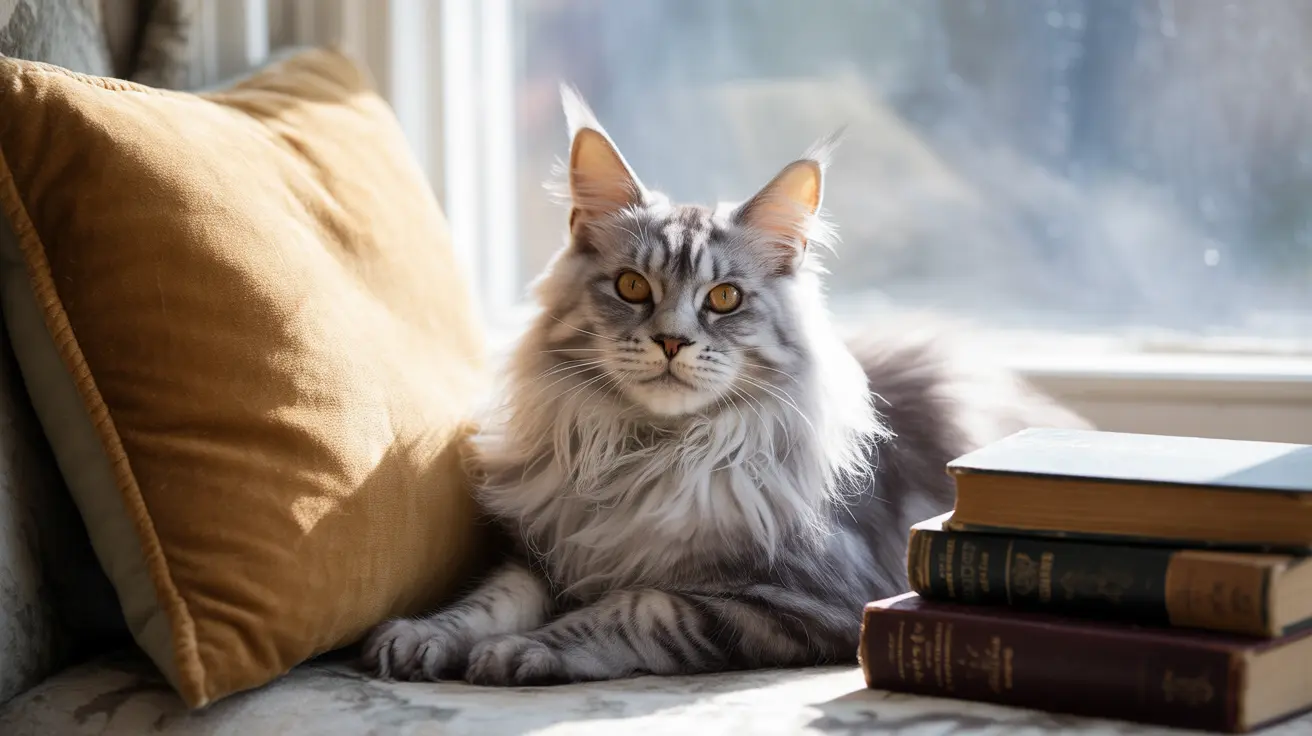Introduction
Many cat owners are surprised to learn that their feline friends don't just purr when content – they also do cats purr when stressed. This fascinating behavior serves multiple purposes in our feline companions, from self-soothing to healing. Understanding why and when cats purr during stressful situations can help us better care for our pets and recognize when they might need extra attention.
Let's explore the science behind stress purring, how to identify it, and what it means for your cat's wellbeing.
The Science Behind Stress Purring
When cats purr under stress, they're activating a natural self-soothing mechanism. The process involves rhythmic contractions of the laryngeal muscles, creating vibrations between 25 and 150 Hertz. This frequency range isn't just random – research suggests it has therapeutic properties that can help cats manage stress and promote healing.
The brain's neural oscillator controls this purring mechanism, allowing cats to produce the sound during both inhalation and exhalation. This continuous vibration creates a natural calming effect, similar to how humans might use deep breathing exercises to reduce anxiety.
How to Identify Stress Purring
While all purring may sound similar to human ears, there are several ways to distinguish between contentment purring and stress purring:
- Body language: Tense posture, flattened ears, or dilated pupils
- Situational context: Unfamiliar environments or vet visits
- Purr intensity: Often louder or more persistent than usual
- Additional vocalizations: May be accompanied by subtle meows or growls
Common Stress Triggers That Cause Purring
Cats may purr when stressed by various situations, including:
- Medical examinations or procedures
- Moving to a new home
- Introduction of new pets or family members
- Changes in routine
- Loud noises or unfamiliar sounds
- Physical pain or illness
The Healing Properties of Stress Purring
Research suggests that stress purring isn't just a coping mechanism – it may actually have physical benefits. The vibration frequency of purring has been shown to:
- Promote tissue regeneration
- Reduce inflammation
- Aid in bone healing
- Release endorphins for natural pain relief
- Improve breathing during respiratory distress
How to Help Your Stressed Purring Cat
When you notice your cat purring due to stress, consider these supportive measures:
- Provide a quiet, safe space
- Maintain regular feeding and play schedules
- Use calming pheromone products
- Speak softly and move slowly around your cat
- Respect their need for space while remaining accessible
Frequently Asked Questions
Do cats purr when they are stressed or anxious, and how can I tell the difference from happy purring?
Stress purring is often accompanied by tense body language, dilated pupils, and flattened ears. The context is also important – if your cat is purring in an typically stressful situation, it's likely a self-soothing behavior rather than contentment.
Why do cats purr when they are in pain or recovering from illness?
Cats purr during pain or illness because the vibrations have natural healing properties. The frequency of purring can promote tissue healing, reduce inflammation, and release endorphins that act as natural painkillers.
Can a cat's purring help reduce my stress or improve my health?
Yes, studies have shown that exposure to cat purring can lower blood pressure, reduce stress hormones, and have calming effects on humans. The frequency of cat purrs may even promote bone density and tissue healing.
How does a cat's purring actually work in terms of voice box muscles and brain signals?
Purring is produced by rapid contractions of the laryngeal muscles, controlled by a neural oscillator in the brain. This mechanism allows cats to purr during both inhalation and exhalation, creating continuous vibrations.
Should I be concerned if my cat purrs excessively or at unusual times?
Excessive or unusual purring, especially when combined with behavioral changes or physical symptoms, should be evaluated by a veterinarian as it may indicate pain or illness.
Conclusion
Understanding that cats purr when stressed adds another layer to our knowledge of feline behavior. This natural coping mechanism showcases the remarkable adaptability of our feline friends and their innate ability to self-soothe. By recognizing stress purring and responding appropriately, we can better support our cats during challenging times and strengthen our bonds with them.






